
THE biblical HOLY DAYS:
GOD’S PLAN FOR HUMANITY - the path to true meaning

In a world searching for identity, purpose, and stability, the Bible offers something deeper than temporary meaning: a divine plan.
God’s Holy Days — the Sabbath and annual feasts — reveal that plan step by step. These days are not relics of the past; they are God’s blueprint for salvation, celebrated by Jesus Christ and the early Church, and filled with meaning for believers today.While society faces rising anxiety, confusion, and moral drift, God offers a rhythm of life rooted in rest, hope, and spiritual clarity.
The Holy Days show us who God is, what He is doing, and how we are meant to live. They teach us how to walk as Jesus walked and align our lives with God’s purpose for humanity.
While society faces rising anxiety, confusion, and moral drift, God offers a rhythm of life rooted in rest, hope, and spiritual clarity.
The Holy Days show us who God is, what He is doing, and how we are meant to live. They teach us how to walk as Jesus walked and align our lives with God’s purpose for humanity.

WHAT DOES JESUS’ CRUCIFIXION AND RESURRECTION MEAN FOR US? (THE CONCLUSION)
If the Resurrection is a historical fact, it changes everything. Explore the conclusion of our evidence series as we move from scholarly proof to personal purpose. Discover why the 97% probability of Christ’s rising demands a response and how this single event provides the ultimate answer to the search for the meaning of life.

PROOF OF THE BIBLE THROUGH THE CRUCIFIXION AND RESURRECTION OF JESUS CHRIST
Is the Resurrection a matter of blind faith or historical fact? Explore the overwhelming evidence for the death and rising of Jesus Christ. From the admission of skeptical scholars to the forensic failure of "stolen body" theories, discover why the empty tomb remains the most secure fact of ancient history.

PROVING THE ACCURACY AND RELIABILITY OF THE BIBLE THROUGH PROPHECY (PROOF JESUS IS THE CHRIST AND MESSIAH)
What are the odds of one man fulfilling 332 specific prophecies written centuries before His birth? Explore the staggering mathematics of Messianic prophecy. From the "Texas Silver Dollar" analogy to the incomprehensible 1 in $10^{157}$ probability, discover why the life of Jesus Christ is the ultimate proof of the Bible's divine authorship.
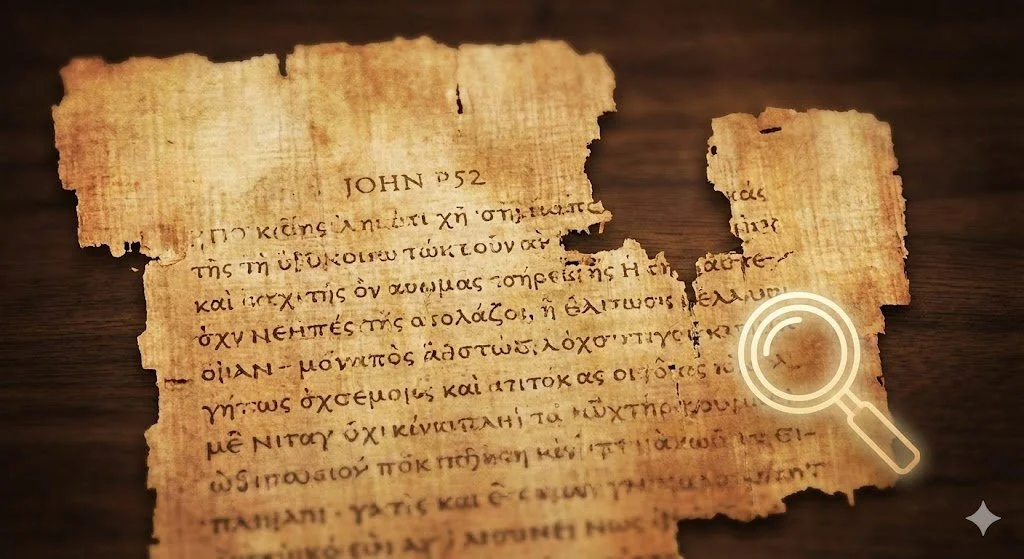
TEXTURAL CRITICISM OF THE BIBLE
Can we trust that the Bible we read today matches the original eyewitness accounts? Explore the science of Textual Criticism and discover why the New Testament holds a unique position in history — with manuscript evidence that far surpasses the Iliad, Caesar, and Tacitus combined.
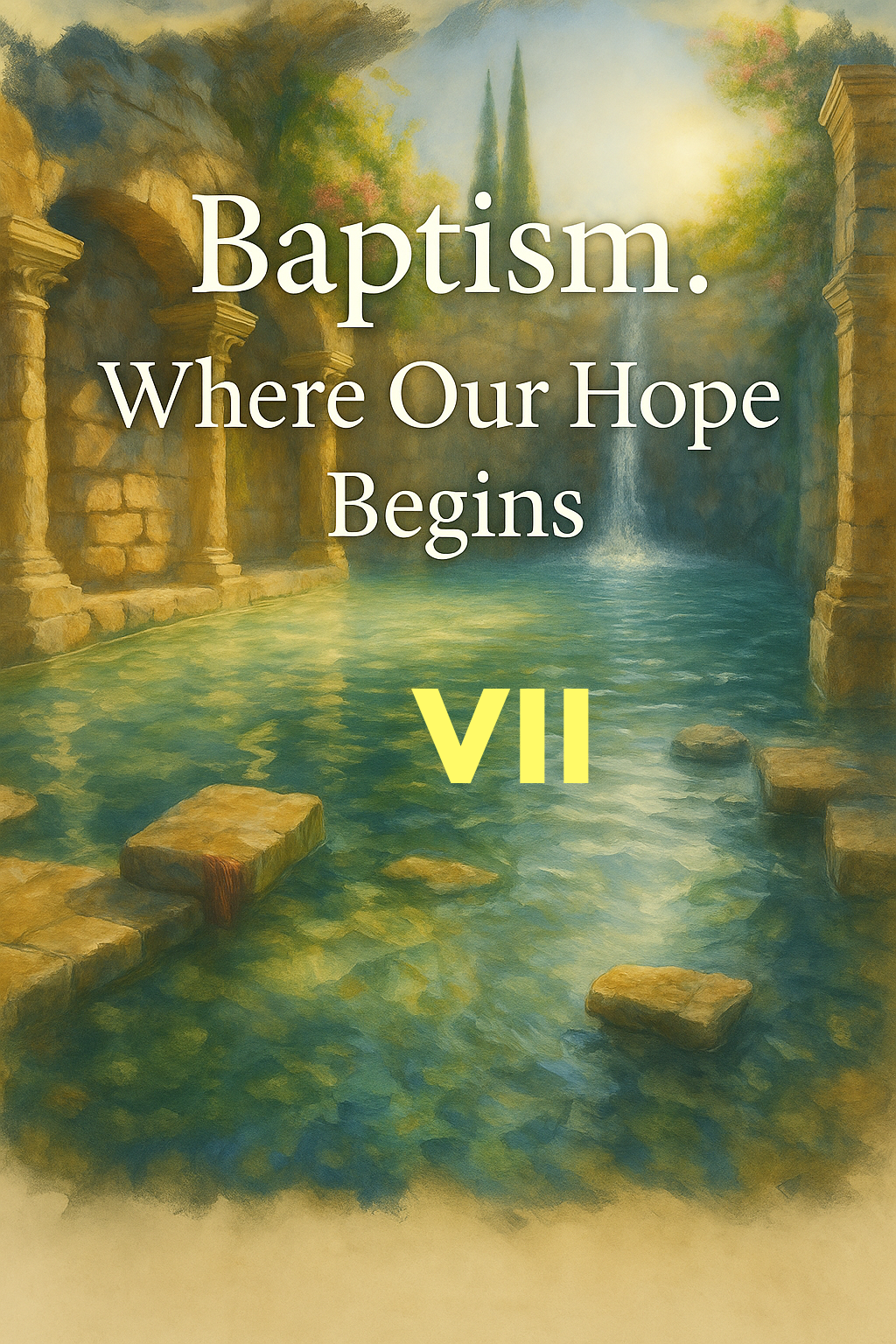
THE CONCLUSION – THE HOPE WE HAVE IN WHAT WAS PROMISED TO US
What is the final purpose of baptism? Explore the conclusion of our series as we connect the ancient "mikveh" to the promise of eternal life. Discover how the "six waterpots" of Cana symbolize our need for Christ’s completion and why the resurrection of Jesus transforms a symbolic ritual into a "Living Hope" for all humanity.
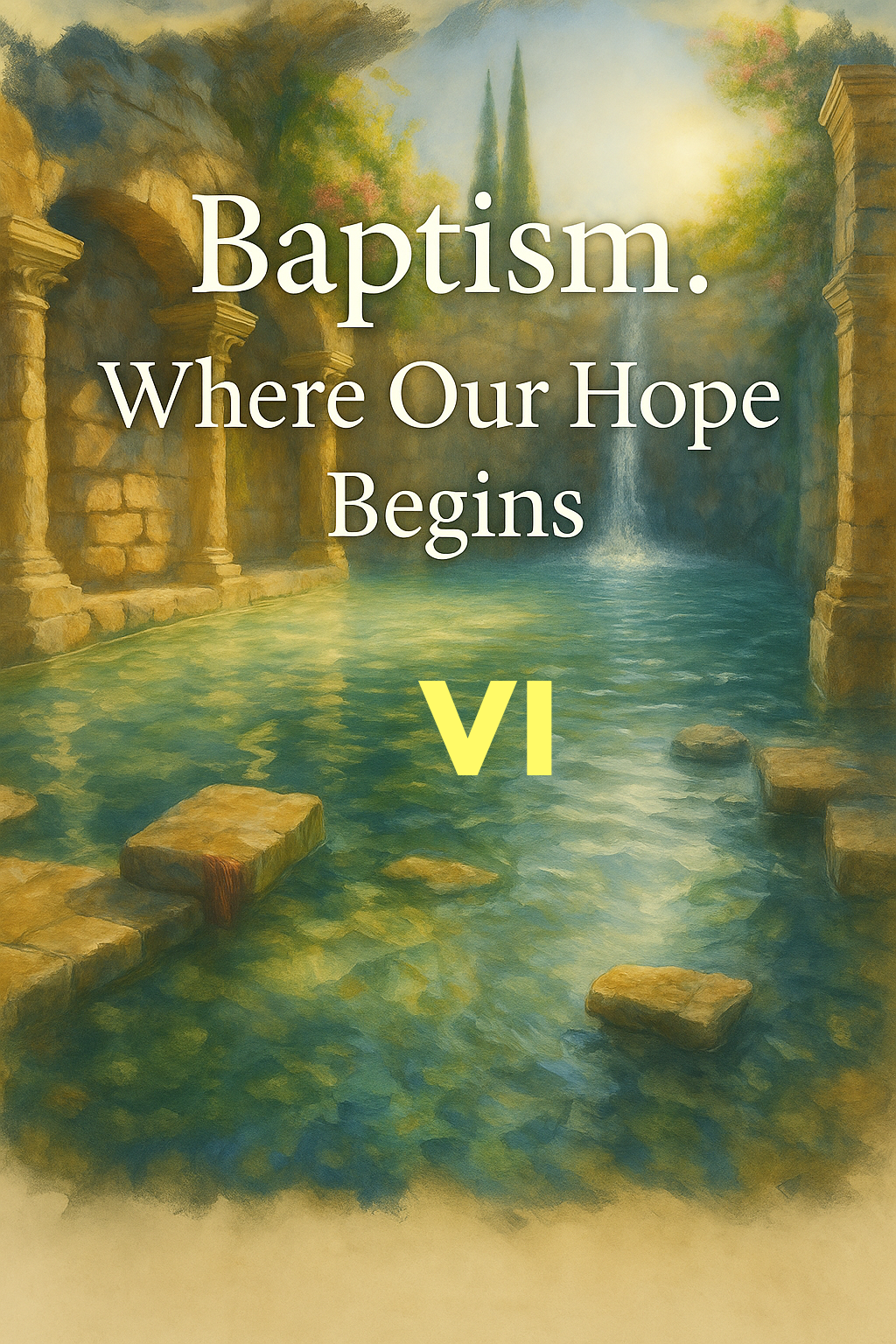
DID JESUS JUST TURN WATER INTO WINE?
Why was Jesus Christ’s first miracle performed using ritual purification jars? Explore the profound symbolism of the wedding at Cana. Discover how the transformation of water into wine signaled the end of temporary washings and the beginning of an eternal covenant sealed in Christ’s blood.
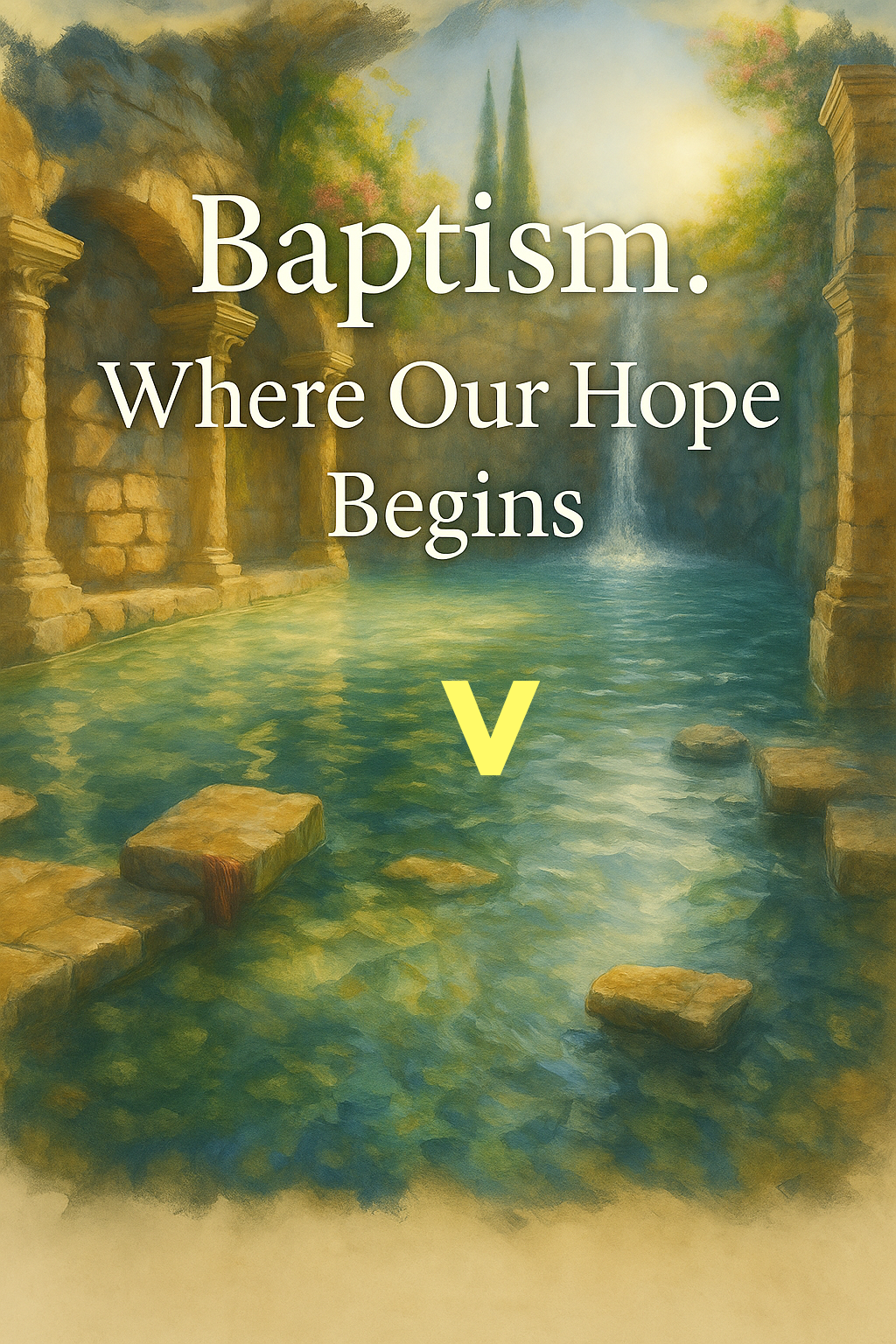
THE HOPE IN JESUS CHRIST’s HEALINGS
Why did Jesus choose specific pools for His most famous healings? Explore the archaeological discovery that Bethesda and Siloam were actually mikveh pools. Discover how Christ fulfilled the prophetic double-meaning of Mikveh — transforming a "collection of waters" into the living "Hope of Israel."
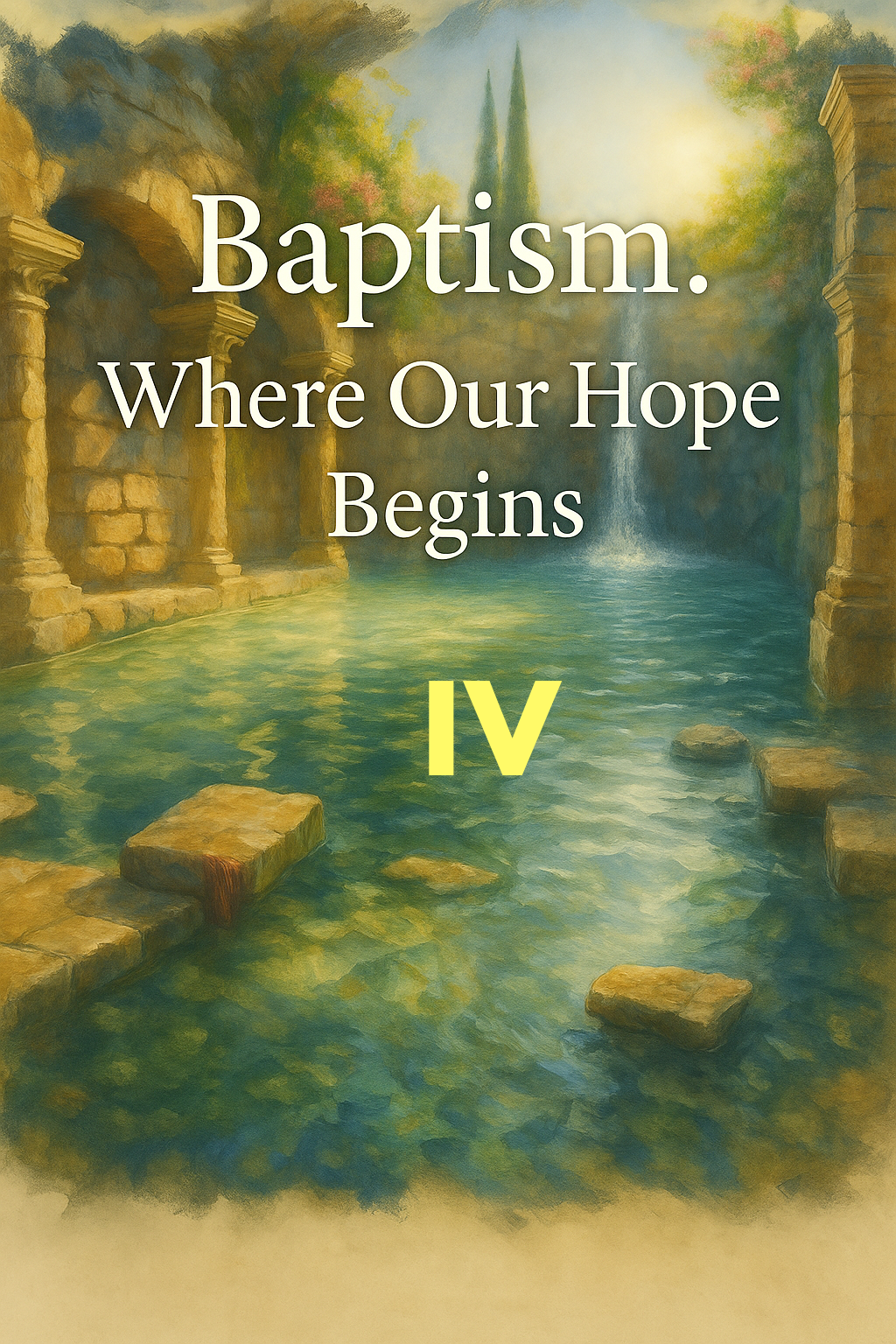
THE INTERTESTAMENTAL PERIOD - THE SILENT YEARS
What happened during the "400 Years of Silence"? Explore the Intertestamental Period and the rise of the mikveh pool. Discover why archaeologists have found hundreds of ritual baths near the Temple Mount and how this widespread practice of immersion prepared the world for the ministry of John the Baptist and Jesus Christ.
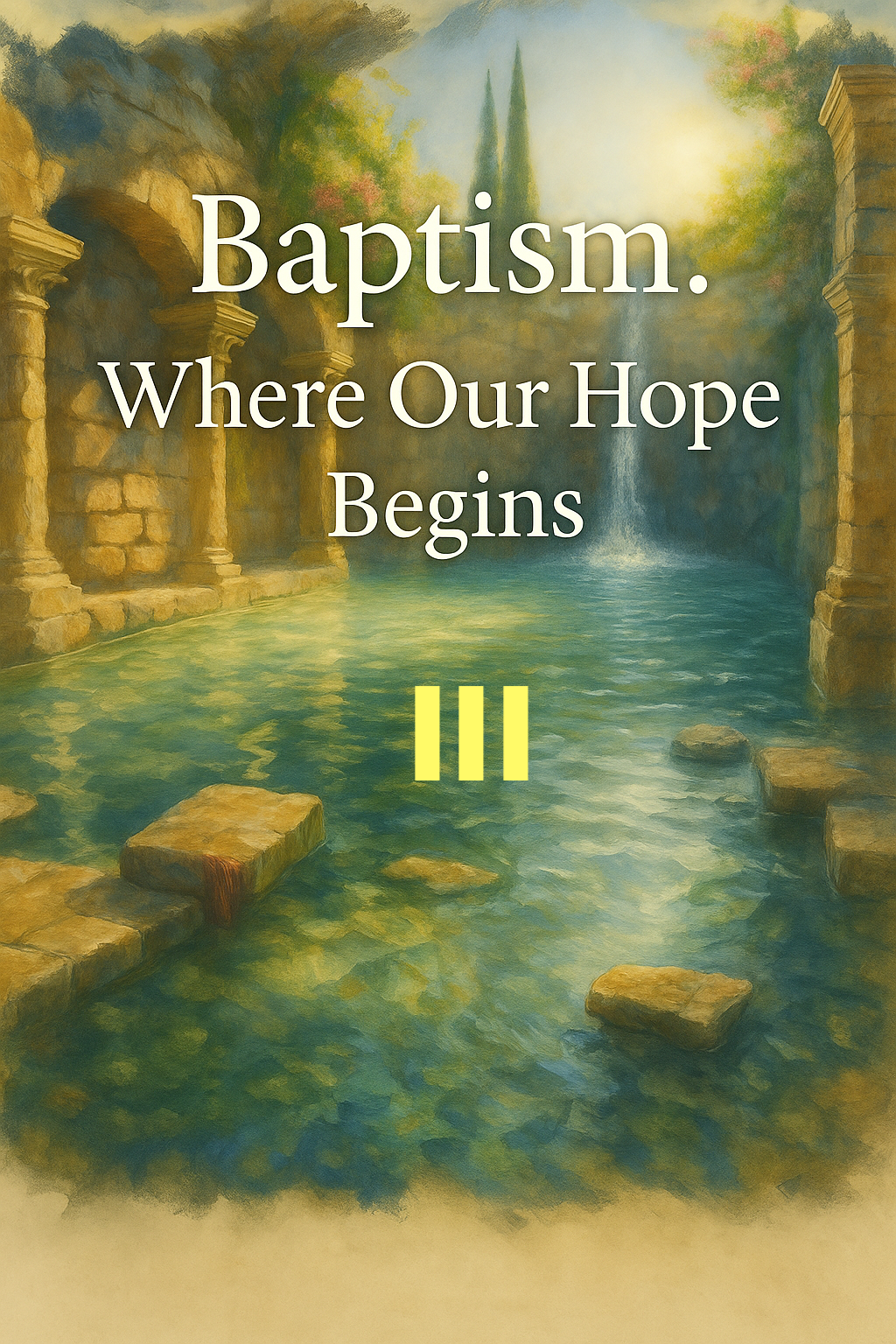
MIKVEH - A NEW MEANING
Why does the Hebrew word for a "collection of waters" suddenly become a title for God Himself? Journey through the Old Testament to discover the double meaning of Mikveh — both cleansing water and hope from God. Learn how Jeremiah and Ezra used this word to reveal that the same God who washes us is the only true Hope of Israel.
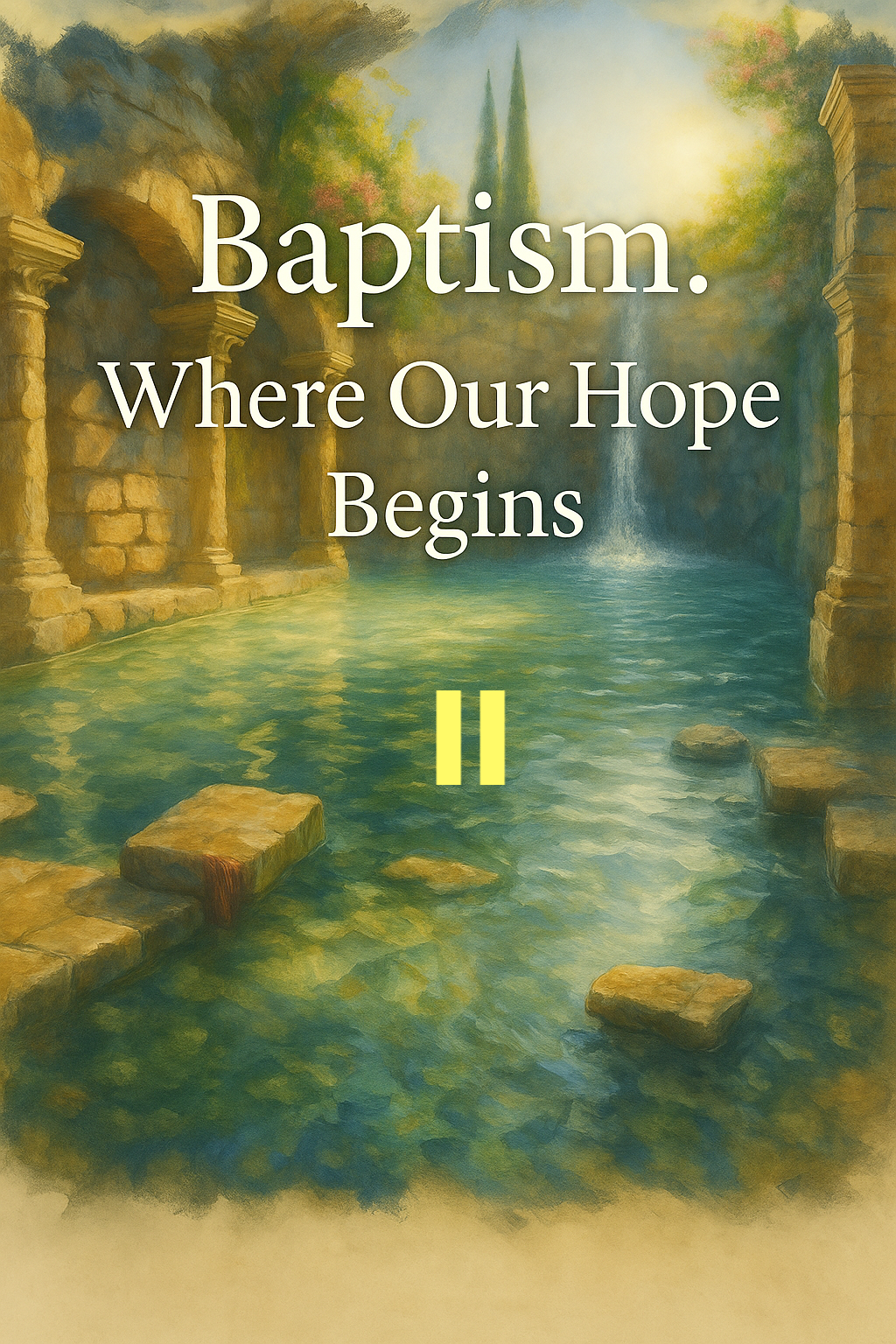
THE WASHING AWAY OF SIN
From the foot of Mount Sinai to the Tabernacle door, water has always been God’s symbol for purity. Discover how ancient ritual washings prepared the way for baptism and why the physical act was only a shadow of the spiritual transformation Jesus Christ seeks in us.
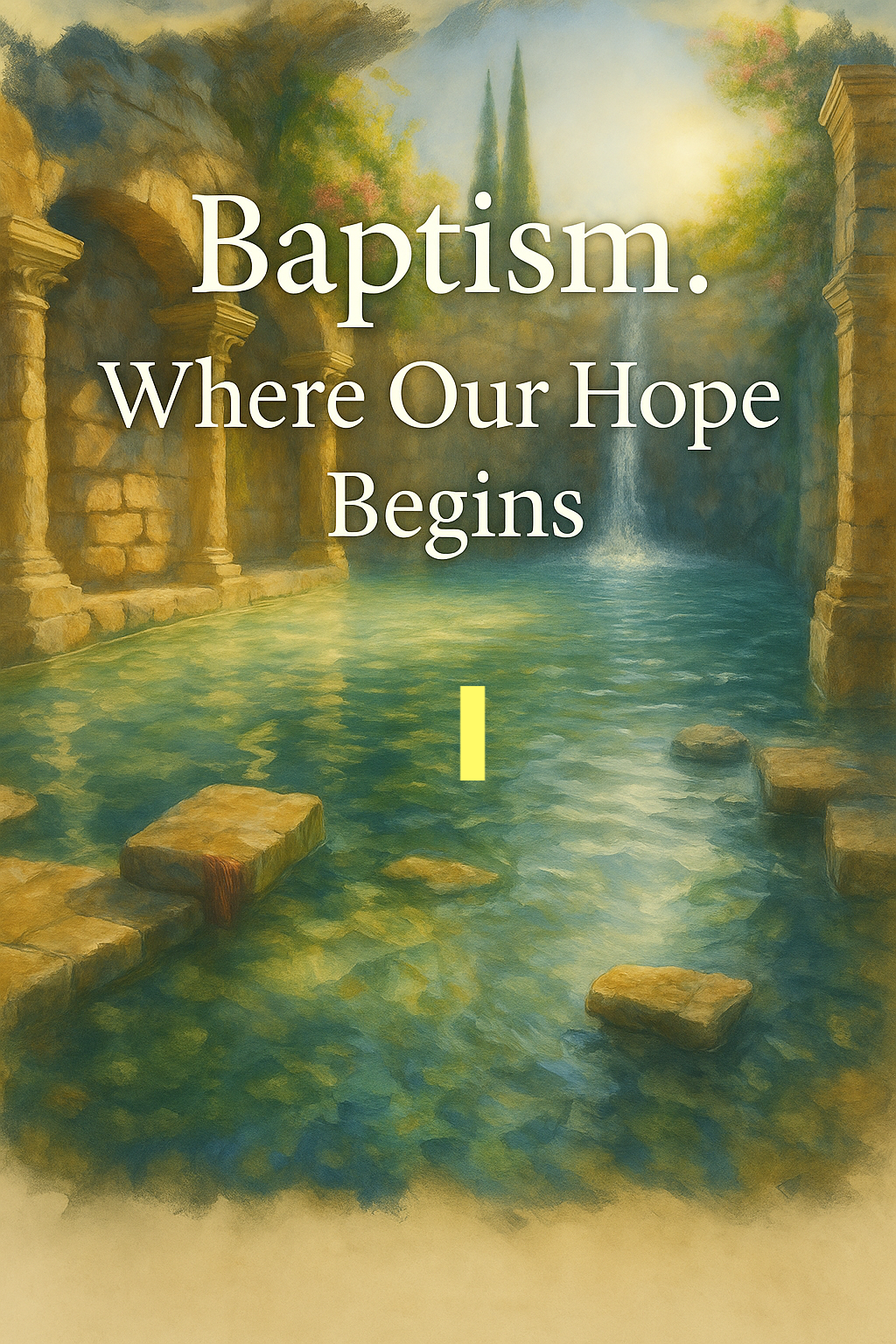
THE BEGINNING: THE ORIGINS OF BAPTISM
Why does the Bible record Jesus Christ’s baptism four times before ever explaining what it means? Explore the origins of baptism — from the silence of the Old Testament to the immediate recognition by the Pharisees. Discover the linguistic roots of Hebrew "purity" and why this pivotal event was foreordained before the foundation of the world.

THE EIGHTH DAY
Beyond the Millennium lies the final step of the Father's plan. Explore the profound meaning of the Eighth Day — the "Last Great Day." Discover the mystery of the Great White Throne Judgment, the ultimate victory over death, and the breathtaking moment when God the Father descends to "tabernacle" eternally with His redeemed family.

THE FEAST OF TABERNACLES
Why does God command His people to live in temporary booths? Explore the profound joy of the Feast of Tabernacles — from the wilderness wanderings to the Millennial Reign of Jesus Christ. Discover how the Greek word skēnoō reveals Christ’s mission to "tabernacle" among us and why this Feast is the ultimate blueprint for God's eternal dwelling with man.

THE DAY OF ATONEMENT
Why must sin be removed, not just forgiven? Explore the deep symbolism of the Day of Atonement — from the two goats of Leviticus 16 to the high priest's entrance into the Holy of Holies. Discover how this solemn day points to the final accountability of Satan and the ultimate reconciliation of all humanity through Jesus Christ, our great High Priest.

THE FEAST OF TRUMPETS
The blast of the shofar is a divine wake-up call. Explore the prophetic significance of the Feast of Trumpets — from the ancient "watchman" warning to the seventh trumpet of Revelation. Discover how this holy day signals the return of Jesus Christ, the resurrection of the faithful, and the establishment of an everlasting Kingdom.

THE FEAST OF WEEKS - PENTECOST
From the smoke of Mount Sinai to the fire of the Upper Room, Pentecost reveals the birth of the Church and the power of God's Spirit. Discover why this "Feast of Weeks" is the essential link between the Law and the Heart, and how it points to the "Firstfruits" of a great spiritual harvest yet to come.

THE WAVE SHEAF OFFERING
What is the prophetic link between Passover and Pentecost? Explore the Wave Sheaf Offering — the "First of the Firstfruits." Discover how this unique ceremony, occurring the day after the Sabbath during the Days of Unleavened Bread, perfectly timed the resurrection of Jesus Christ and serves as the divine guarantee of our future resurrection.

The FEAST OF UNLEAVENED BREAD
What happens after we accept the sacrifice of the Lamb? Explore the profound spiritual meaning of the Feast of Unleavened Bread. Discover why the Apostle Paul commanded the early Church to "keep the feast" and how the physical act of removing leaven mirrors the lifelong process of rooting out sin and embracing sincerity and truth.

THE PASSOVER
Is Passover merely a historical tradition, or the cornerstone of the Christian faith? Explore how the blood of the lamb in Exodus 12 serves as the prophetic blueprint for Jesus Christ — our true Passover Lamb. Discover why the early Church continued this memorial and how it reveals the depth of God’s redemptive plan for all humanity.

THE SABBATH
Is the Sabbath a "Jewish tradition" or a universal gift for humanity? Explore the evidence for the seventh-day Sabbath —from its sanctification at Creation to its observance by Jesus Christ and the Apostles. Discover why over 30 global languages still call Saturday "Sabbath" and why no biblical mandate ever changed the day of worship to Sunday.

